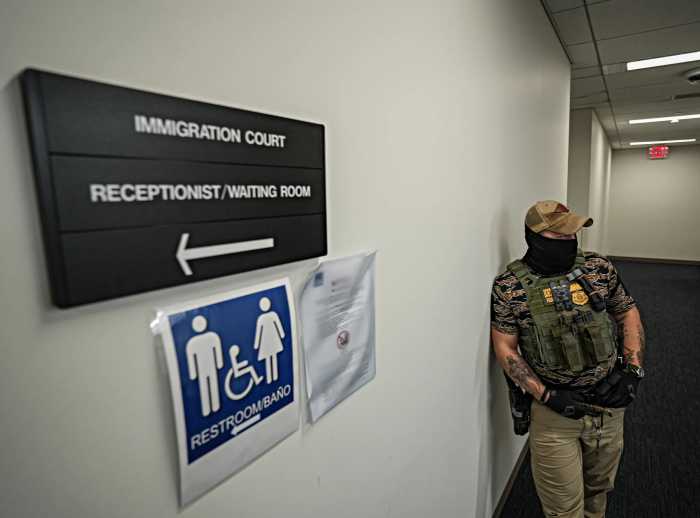Rep. Mike McMahon made the biggest vote of his life last Thursday night — so, naturally, he was on the phone with The Brooklyn Paper the next morning.
That April 2 vote — on the president’s $3.5-trillion budget — was a doozy, a bill both massive in size and controversy (not a single Republican voted for it).
“I was a little nervous as I cast my vote,” said McMahon, who was literally on Line 1 to our Metrotech offices from somewhere inside his Bay Ridge–Staten Island district.
“It’s a big bill, so it’s nerve-wracking,” he said. “But it’s a fiscally prudent plan that will take on some of the big challenges: health care costs, education, energy.”
McMahon said he cast the vote at 7:30 pm — just too late to make the last fast Amtrak out of Washington. Instead, he caught the 9 pm local — and crawled all the way up the Eastern Seaboard (good thing he’s on the Transportation Committee).
The budget vote will earn McMahon some criticism in his centrist district, but he said he welcomes the chance to explain his rationale.
“It’s not a perfect budget because it does not reduce the debt as quickly as I’d like,” he said. “But it is responsible. It does have tax breaks for the middle class and it does provide a roadmap on health care, education and, energy. It also has an increase in benefits for veterans.”
But it has a huge deficit — extending more than a decade into the future.
“I am as concerned as everyone about deficits,” he said. “But remember, when the Bush administration took over, it had a surplus. This year, we were left with a $1-trillion budget deficit and a national debt of $10 trillion. President Obama’s budget will cut the annual deficit in half and reduce the national debt by one-third over five years. It’s not as quick as I’d like it, but given the tough times we’re in, this is the most sensible budget that the country has had in eight years.”
But if times are so tough, why should the nation take on so much, the congressman was asked.
“We can’t stabilize the economy without dealing with big-cost items like health care,” he said. “Every small businessman knows that this is the biggest problem. Yes, we must get deficits down, but this is like in the 1930s and ’40s, when we needed to take bold action and we did.”






















